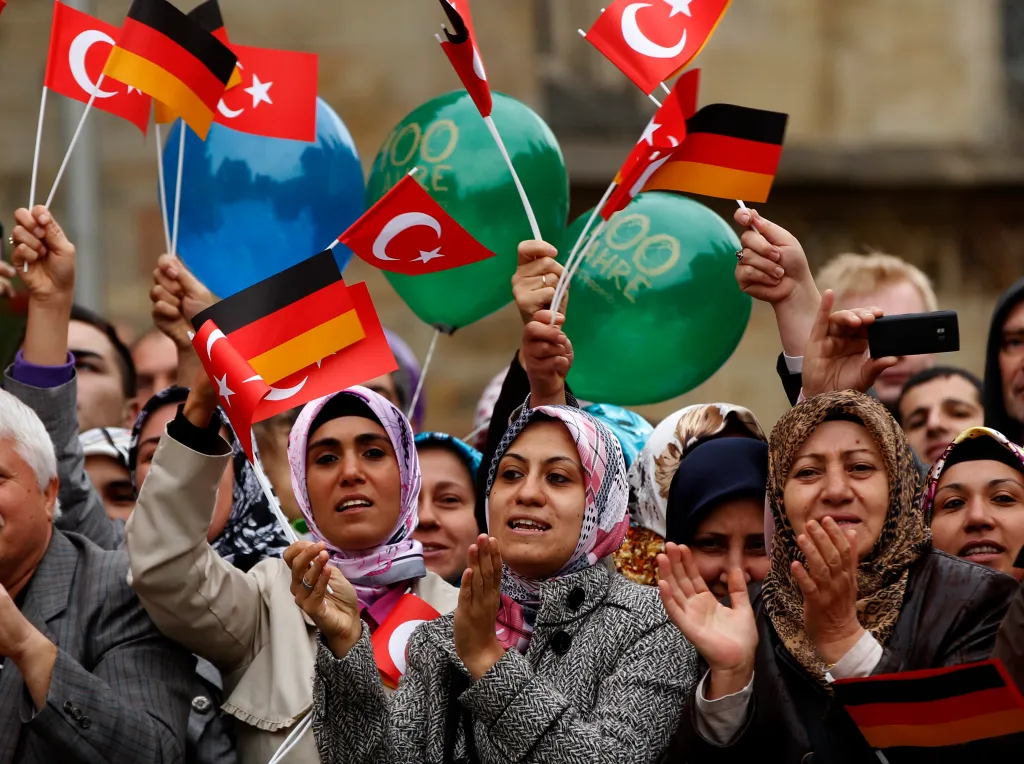Germany, known for its rich history and cultural diversity, is home to a significant Muslim population. Understanding the size, distribution, and impact of this community provides valuable insight into Germany’s social fabric. This article offers a detailed exploration of the Muslim population in Germany, covering its demographics, historical context, and societal contributions.
1. Demographics and Growth
As of recent estimates, the Muslim population in Germany is approximately 5 million, making up about 6% of the total population. This figure reflects a diverse community with various ethnic backgrounds, including Turkish, Arab, Kurdish, and other Muslim-majority nationalities.
The growth of the Muslim population in Germany has been influenced by several factors:
- Migration: The primary wave of Muslim migration began in the 1960s and 1970s, when Germany invited guest workers from Turkey and other countries to support its booming economy. Many of these workers settled permanently, establishing communities across the country.
- Refugee Crisis: The Syrian civil war and other regional conflicts have led to an increase in asylum seekers and refugees, many of whom are Muslim. This recent influx has further diversified the Muslim population in Germany.
2. Historical Context
The history of Islam in Germany dates back to the early 20th century, with the arrival of the first Muslim immigrants and students. However, it was the post-World War II era that saw a more significant increase in the Muslim population due to labor migration agreements.
Over the decades, Muslim communities have grown and integrated into German society, contributing to various aspects of public life. The 1990s and early 2000s saw further integration efforts and the establishment of numerous Islamic organizations, mosques, and cultural centers.
3. Societal Contributions
The Muslim community in Germany plays a vital role in the country’s social and cultural landscape. Their contributions include:
- Cultural Enrichment: Muslim Germans have enriched the cultural diversity of the country through festivals, cuisine, art, and traditions. Cultural events and exhibitions celebrating Islamic heritage are regularly held, fostering greater intercultural understanding.
- Economic Participation: Many Muslims in Germany are active in various sectors, including business, healthcare, education, and public service. They contribute significantly to the economy and local communities through entrepreneurship and professional expertise.
- Community Building: Islamic organizations and associations provide essential services to both Muslim and non-Muslim communities. These include educational programs, social services, and interfaith dialogues, promoting social cohesion and mutual respect.
4. Challenges and Integration
Despite their contributions, the Muslim community in Germany faces several challenges:
- Integration Issues: Assimilation and integration can be challenging, especially for recent immigrants and refugees. Language barriers, cultural differences, and socioeconomic factors can impact the integration process.
- Discrimination: Islamophobia and anti-Muslim sentiment occasionally surface in German society. Discrimination and prejudice can affect various aspects of life, including employment, housing, and social interactions.
- Religious Practices: Adapting to religious practices in a predominantly secular society can sometimes be difficult. Issues such as halal food availability, prayer facilities, and religious holidays require ongoing dialogue and accommodation.
5. Government and Societal Response
The German government and various organizations have made efforts to address these challenges:
- Integration Programs: Numerous programs aim to support the integration of Muslim immigrants and refugees, including language courses, job training, and social services.
- Anti-Discrimination Measures: Legislation and policies have been introduced to combat discrimination and promote equal rights for all residents, regardless of their religion.
- Interfaith Dialogue: Initiatives fostering dialogue between different religious communities help promote mutual understanding and respect, contributing to a more inclusive society.
The Muslim population in Germany is a dynamic and integral part of the country’s diverse social landscape. With approximately 5 million Muslims contributing to various aspects of German life, their presence enriches the cultural and economic fabric of the nation. While challenges remain, ongoing efforts towards integration and mutual respect continue to shape a more inclusive and harmonious society. Understanding and acknowledging the contributions and experiences of Germany’s Muslim community is crucial for fostering greater social cohesion and celebrating the country’s multicultural identity.
